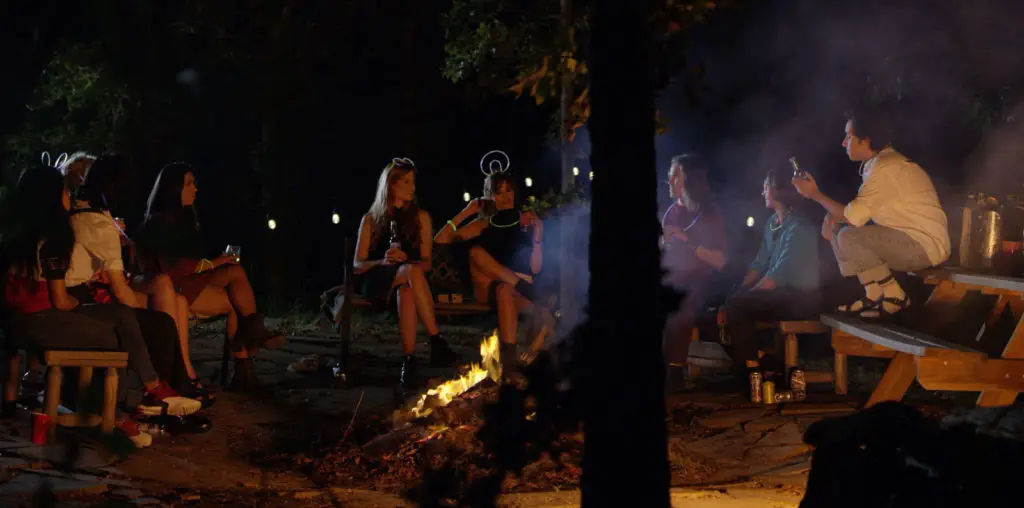
It seems that everyone in town is intent on celebrating Claire’s birthday even though Claire’s big day is something she’d much rather forget.
Charles Chintzer Lai’s 23-minute drama, Blue Monday, is every bit what its title claims, and then some. For almost one half hour we live, drink and breathe the internal struggles of Lai’s principal character Claire, who is obviously depressed. It seems that Claire is unhappy in her job, feels like she’s in a rut, and absolutely despises that her friend Amelia has found success with her latest novel.
While the cinematography beautifully mimics Claire’s psyche— with its muted tones and mundane images— and the filmmaker is highly skilled in the direction of superbly-realistic actors— there’s definitely something amiss from this tale of emptiness and despair.
Blue Monday takes place in the UK, but its location is irrelevant. The film’s characters and plot are universal in that we’ve all succumbed to Claire’s emotional upheaval, and certainly we females have all lied about our ages, as Claire’s friend admittedly makes a career of doing. And yes, we’ve all been interested in someone who may not feel the same way. All of this is a true slice of life, but does it make an interesting movie when this bleak and tortured reality is all that there is for the entire duration of the film?
In my opinion, no.
Naturally, I don’t think a film should reflect all laughs and giggles, when it comes to an exploration of the psyche. However, there should be some sense of comic relief, so that viewers don’t all leave the theatre as depressed as Claire and never want to see another movie again. Heck, even the late Francois Truffaut, the long-reigning king of melodrama, balanced abysmal torture with interludes of sunshine in one of my favorite films of all time, La femme d’à côté (1981).
Still, I do admire filmmakers who attempt the daunting feat of creating short movies. Believe me, it’s not easy to portray all that you hope, in a tiny structure, and very few directors can do this well. The good news is that Charles Chintzer Lai has a true vision and understanding of human nature, and he is able to bring this to the screen in a strong way. Perhaps someday soon, Lai will find room to explore the subtle humor that does exist in our darkest moments when he creates a feature length film. I do look forward to that time.
This film was submitted for review through our Submission for Review system. If you have a film you’d like us to see, and we aren’t already looking into it on our own, you too can utilize this service.
